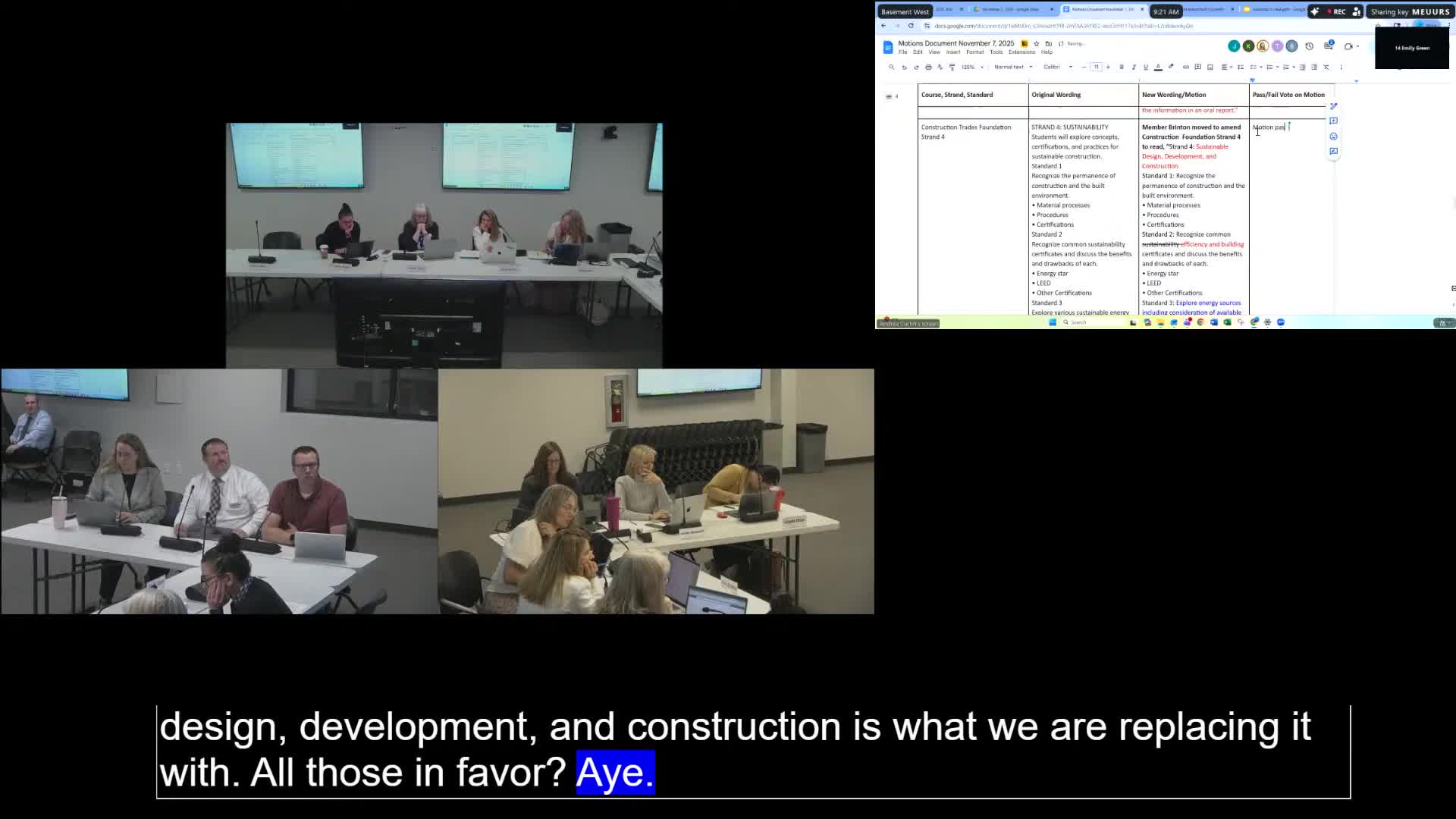Committee advances child abuse and human trafficking instructional materials, requests follow-up review
Get AI-powered insights, summaries, and transcripts
Subscribe
Summary
The committee reviewed 13 instructional material submissions required under Utah Code 53G-9-207 and R277-630, approved several items with recommendations, and scheduled a short follow-up Standards & Assessment meeting to verify organizations' revisions and clarifications before final full-board action.
The Standards and Assessment Committee considered 13 submissions of child abuse and human trafficking instructional materials and voted to approve several resources with staff recommendations while asking for follow-up verification of requested edits.
Mindy Elliott, the child abuse and human trafficking prevention specialist, said materials are reviewed twice a year per statute (Utah Code 53G-9-207) and the implementing rule (R277-630). Elliott explained that some organizations submitted materials for both child abuse and human trafficking categories; in several cases the materials were overlapping because organizations integrated trafficking prevention into existing child-abuse curricula.
Assistant Attorney General Angela Adone advised the committee on process: staff should collect written responses from organizations after the committee—s recommendations, and the committee should require staff to report back so the committee can verify whether requested edits were made. Adone also recommended the committee avoid private off-line discussions with organizations and instead make requests publicly through staff to preserve transparency.
Committee members cited specific wording and content issues in a number of curricula (Boundary Town, Barbara Sinatra Children—s Center Foundation, Lauren—s Kids and others). Examples of requested changes included correcting typographical errors, clarifying scenarios ("Angel and Mark" scenario pronouns), replacing the LGBT acronym with "sexual orientation and gender identity" where state law uses the longer phrase, and reordering slides so age-appropriate instruction flows correctly. Several materials were approved, including the Barbara Sinatra Elementary School child abuse curriculum; the committee passed motions approving other Boundary Town resources with staff-directed changes noted in the record.
Because organizations must submit revised materials or explain why they declined requested edits, the committee agreed to hold a short virtual follow-up meeting before the next full board meeting so staff can present organizations' responses and the committee can decide whether to forward final approvals to the full board. The committee also explicitly extended a provisional approach for one organization whose three-year approval would expire in December, directing staff to handle a temporary extension while changes are resolved.
What happens next: Staff will collect organizations' written responses to committee recommendations and present them at a short follow-up Standards & Assessment committee meeting prior to the next full board review.
Speakers quoted in this article are drawn from the committee transcript and are limited to those appearing on the meeting record.
